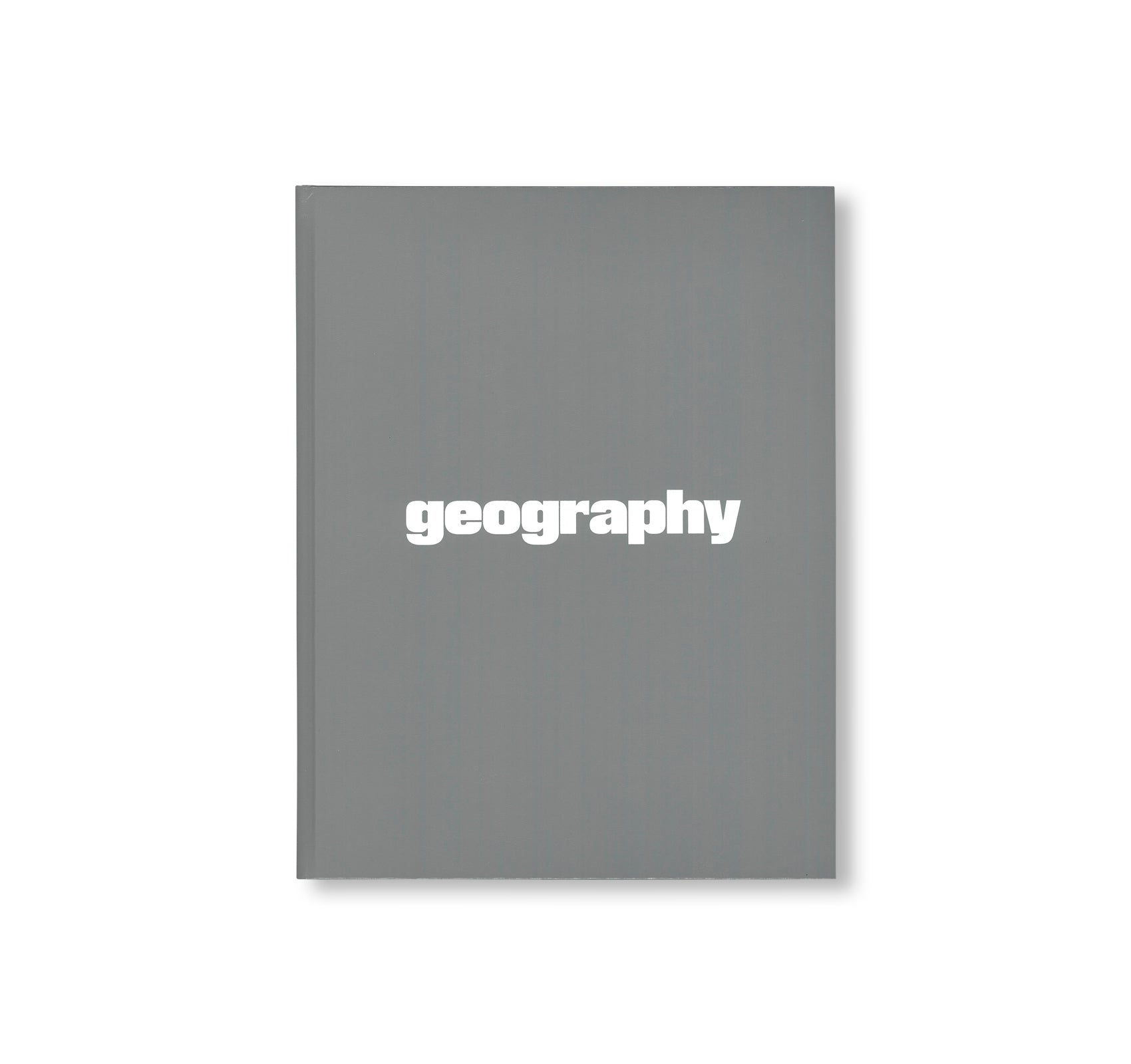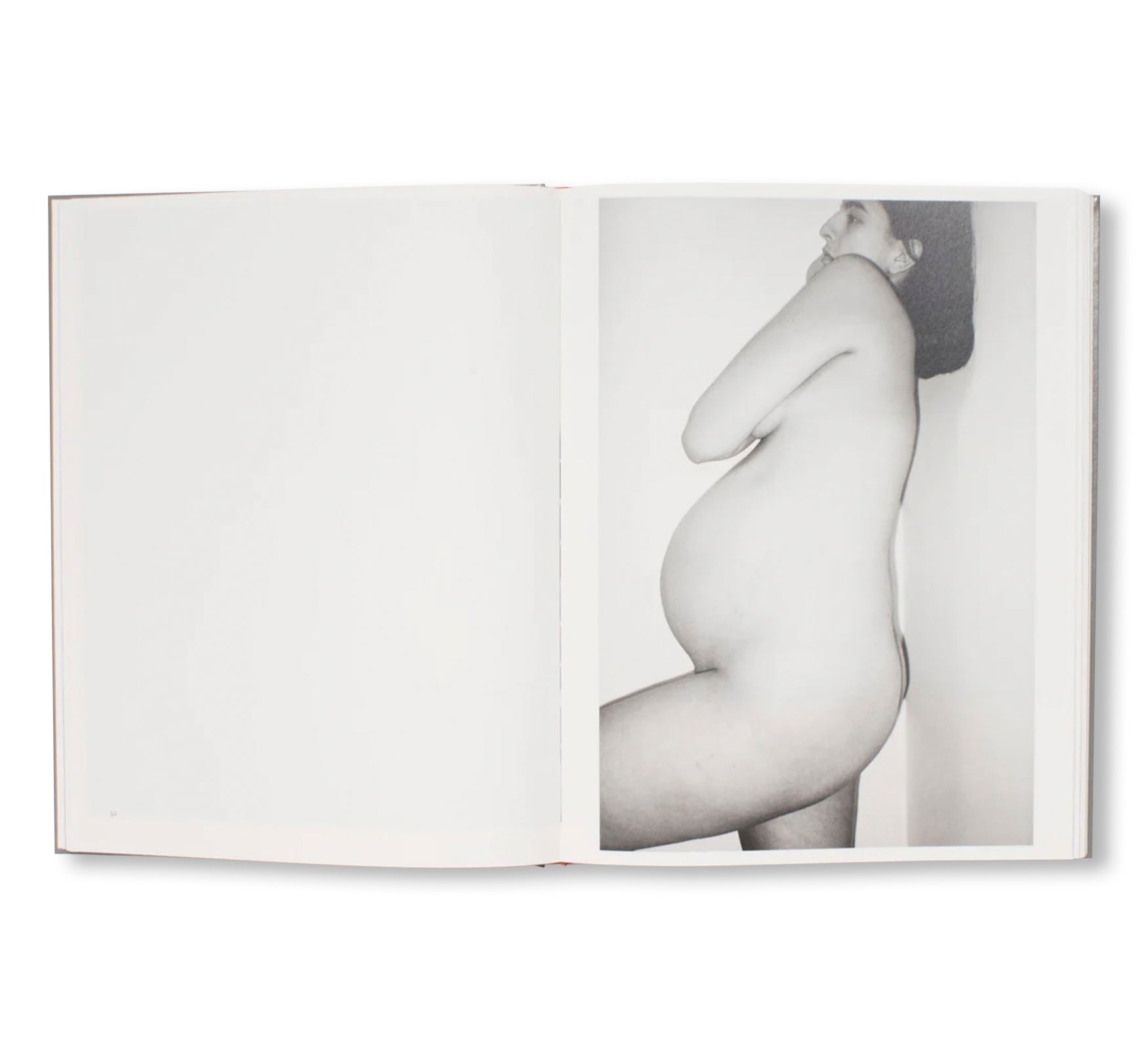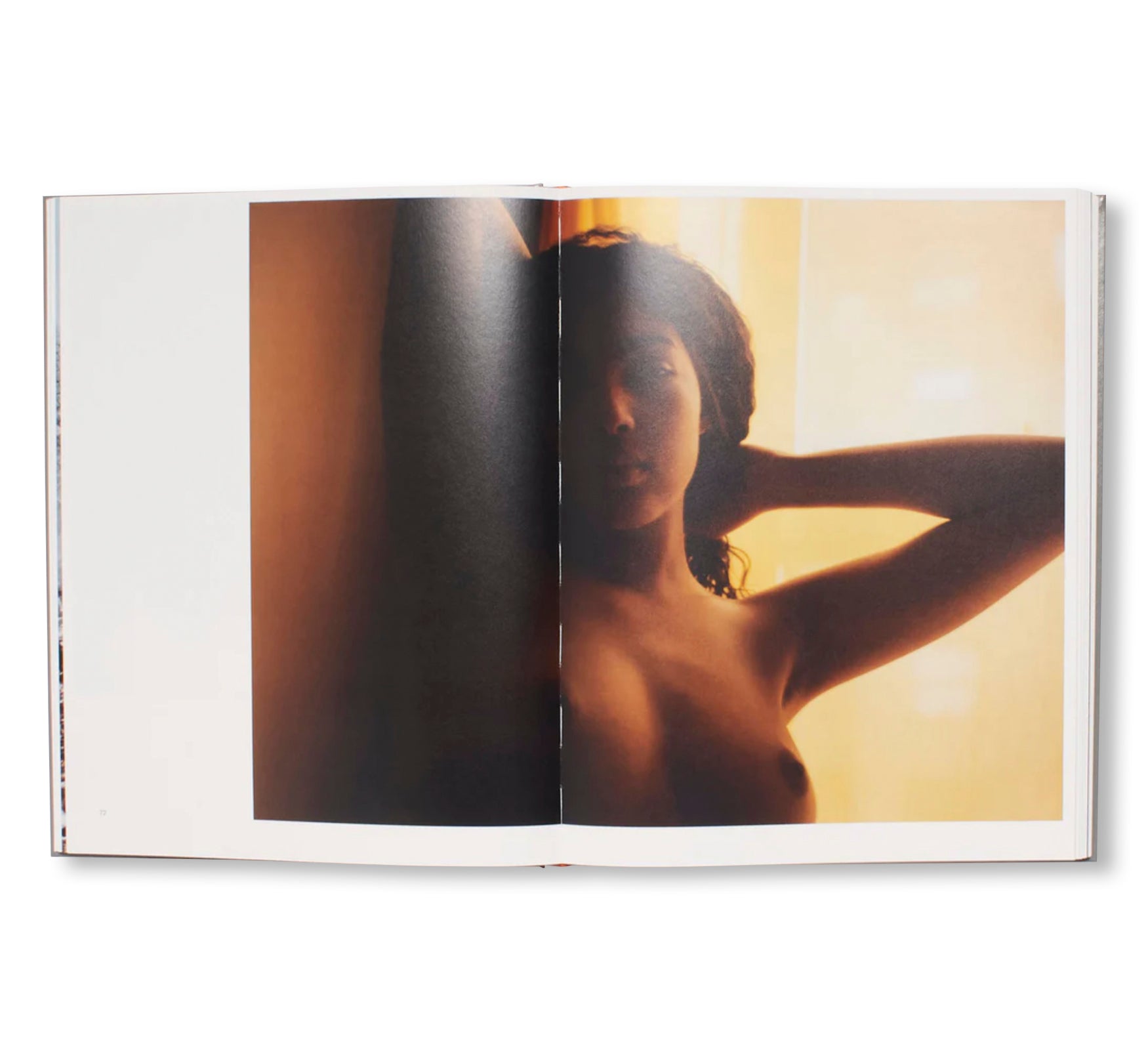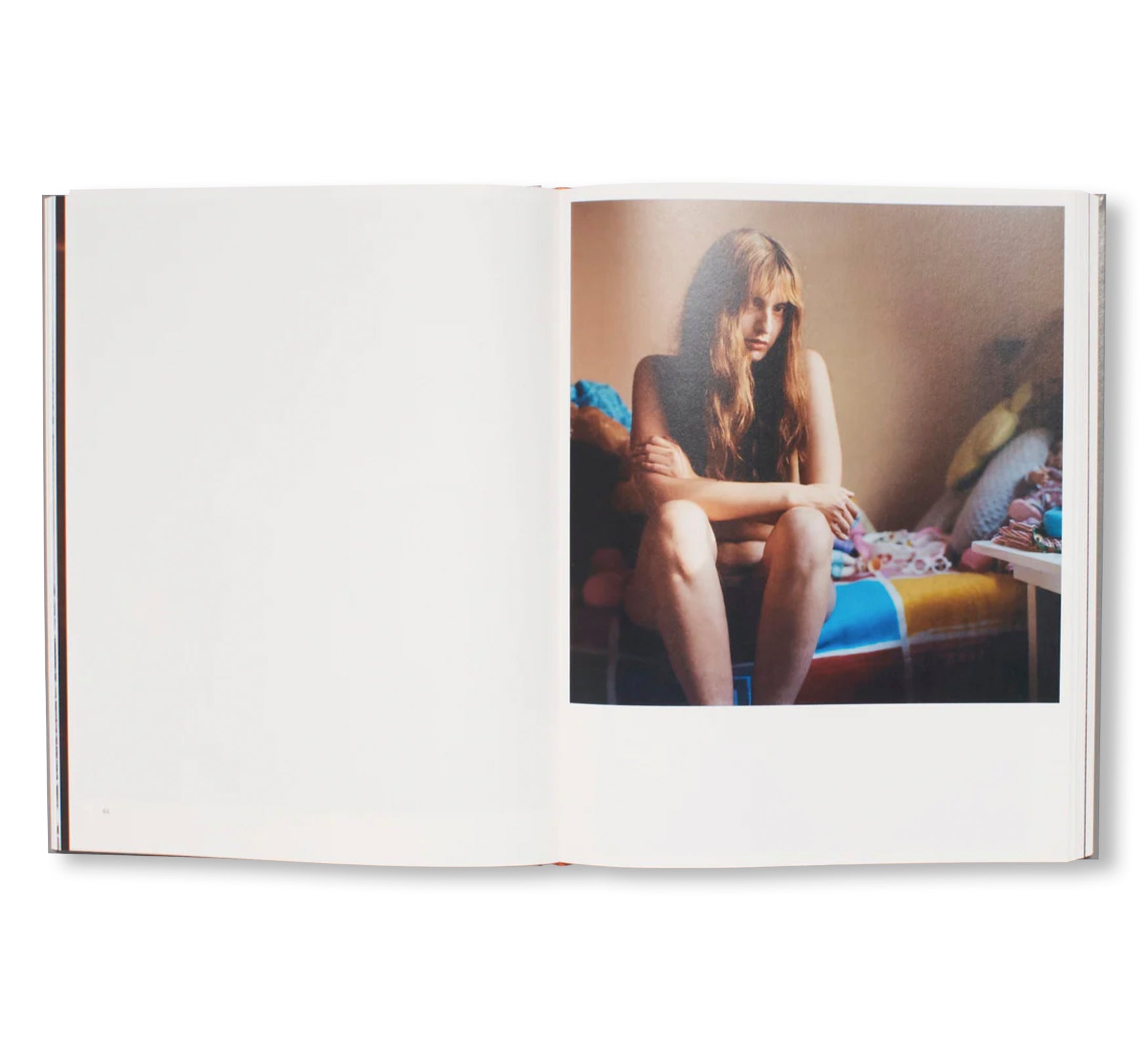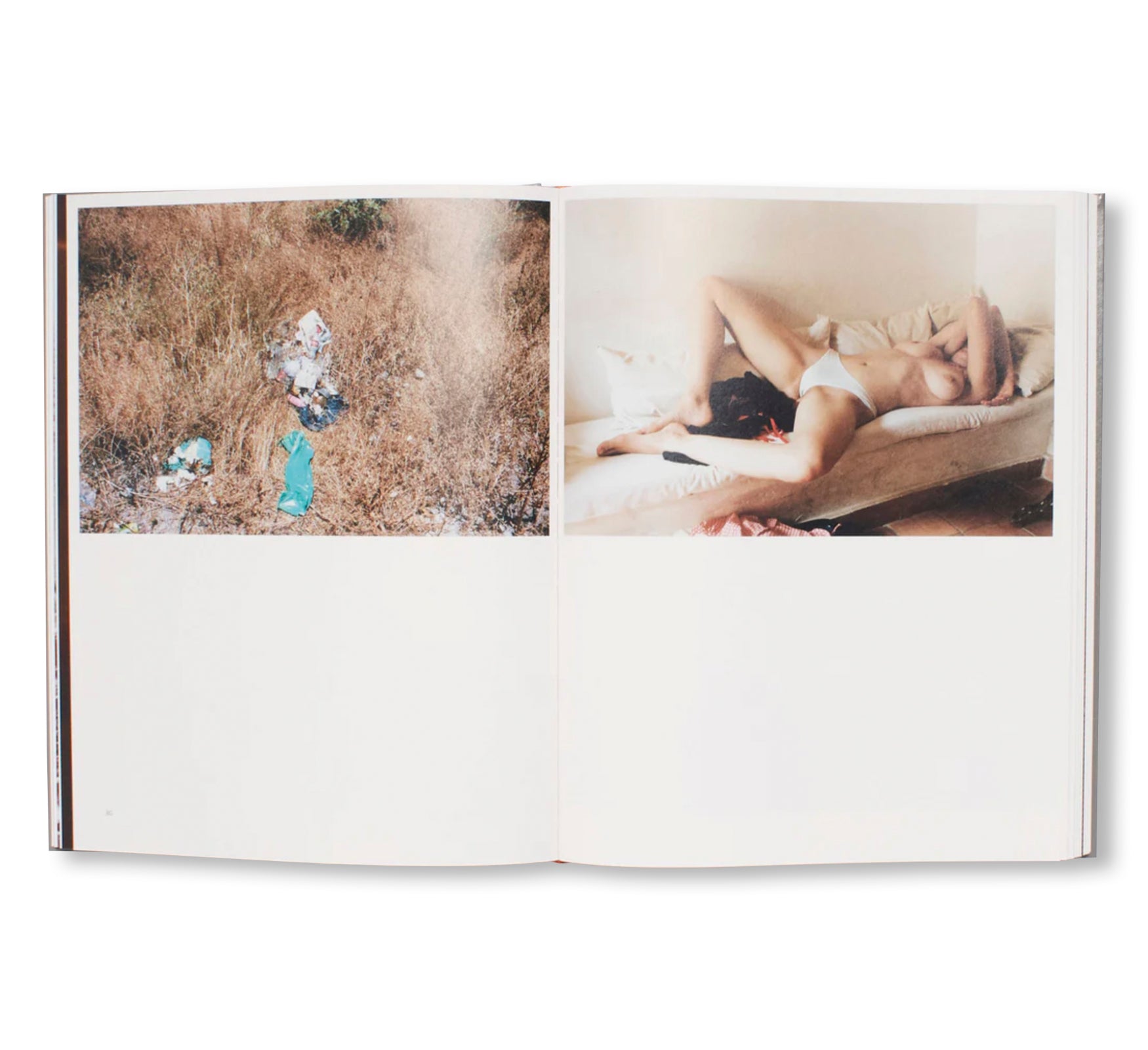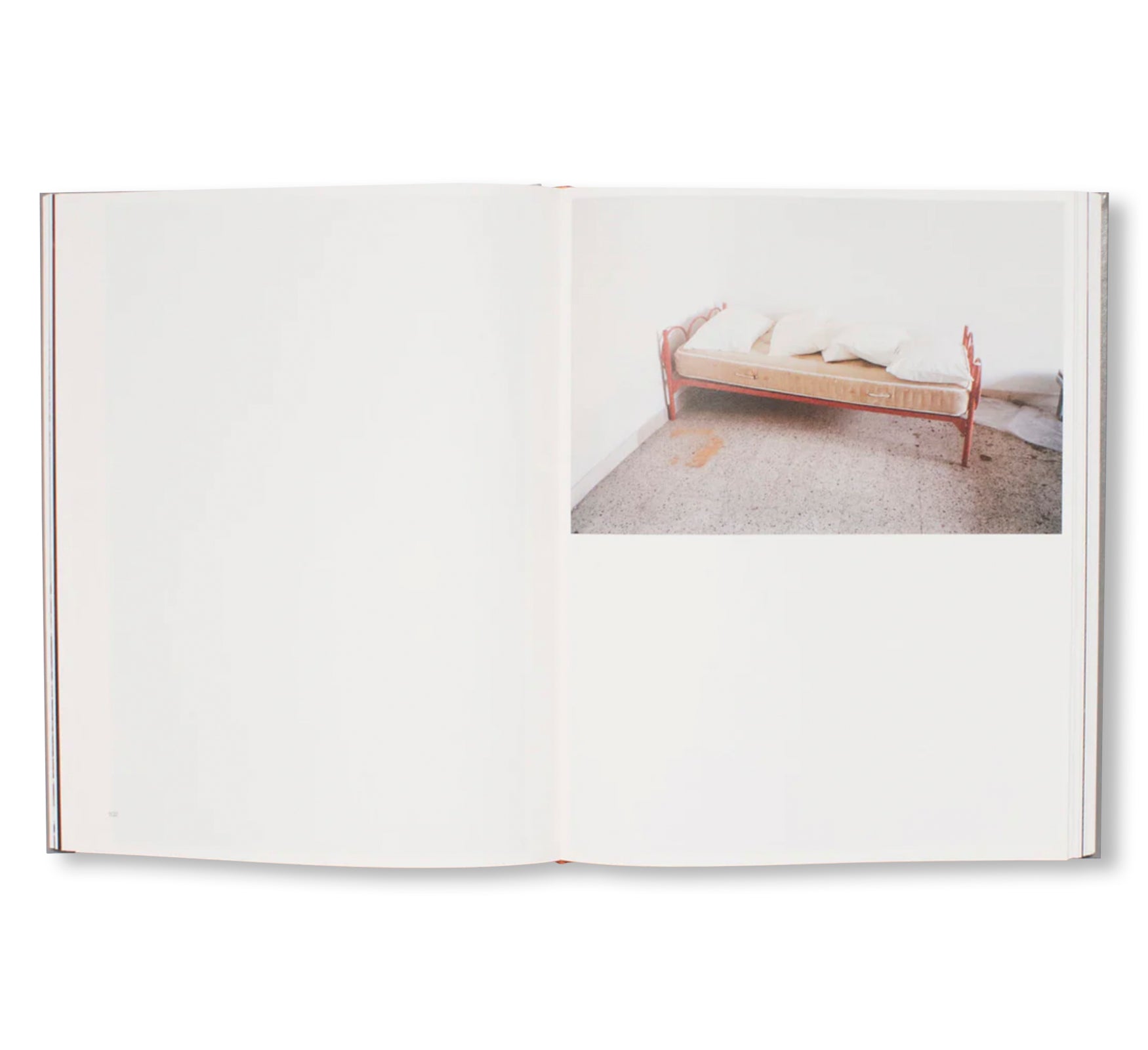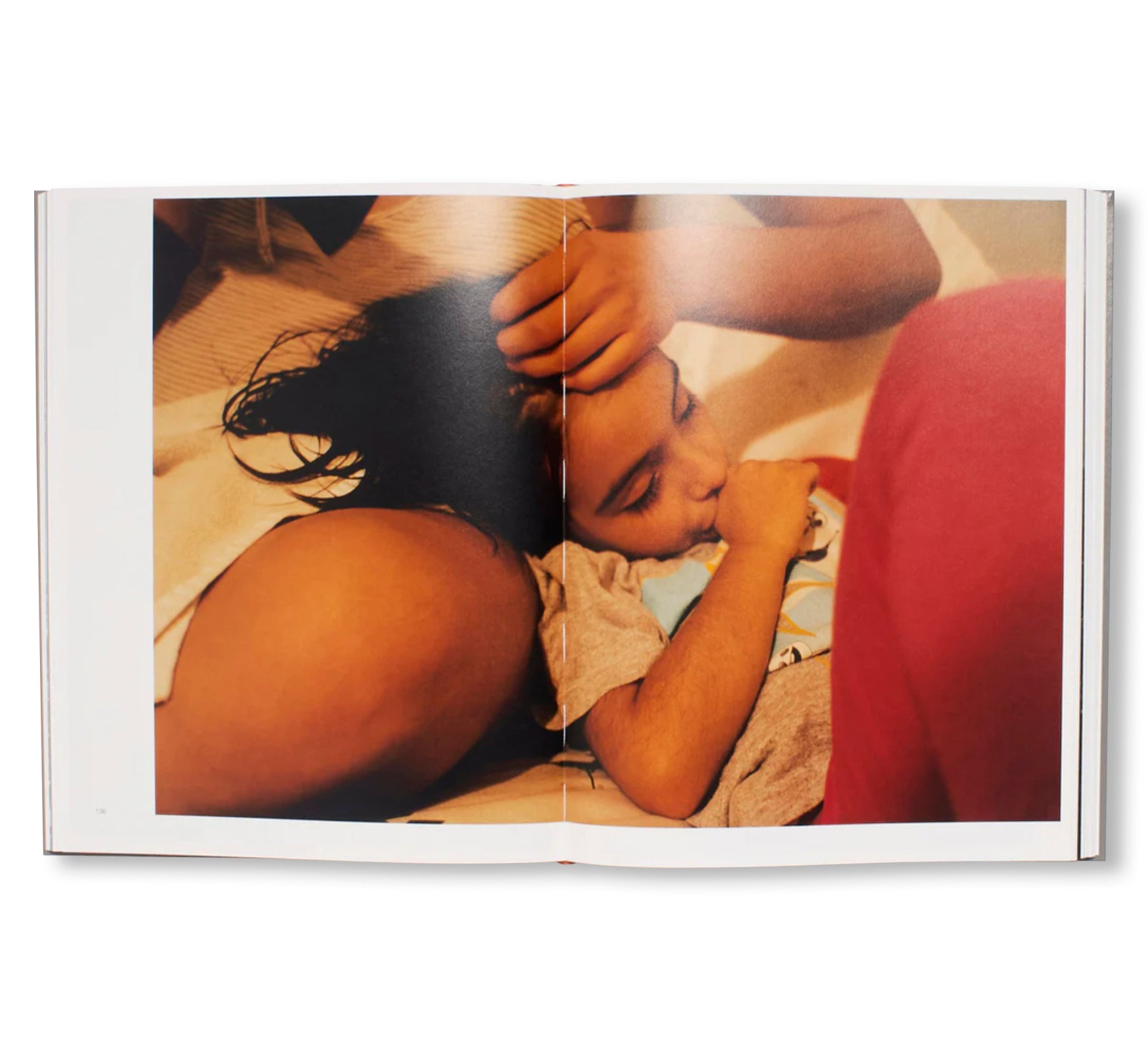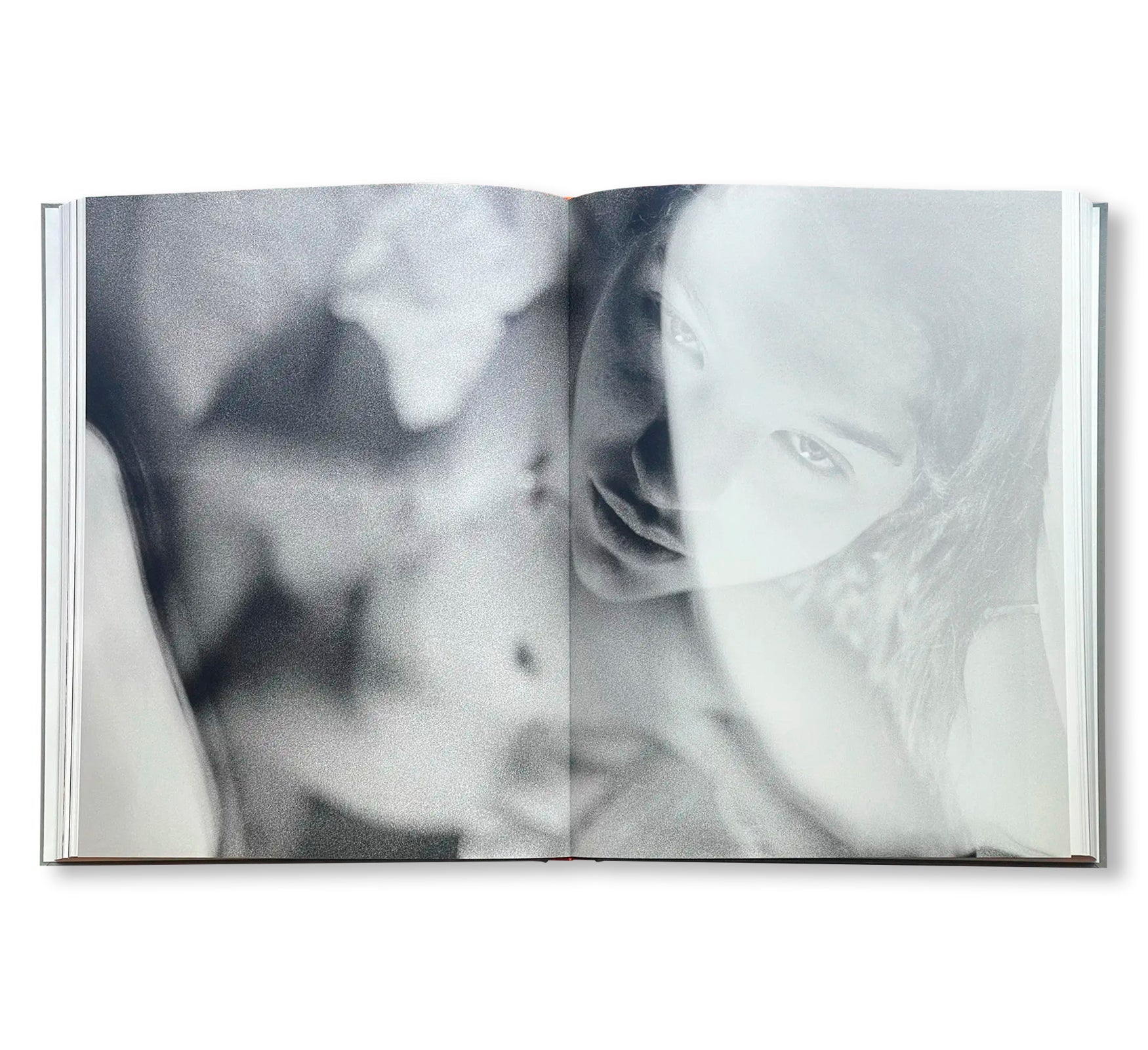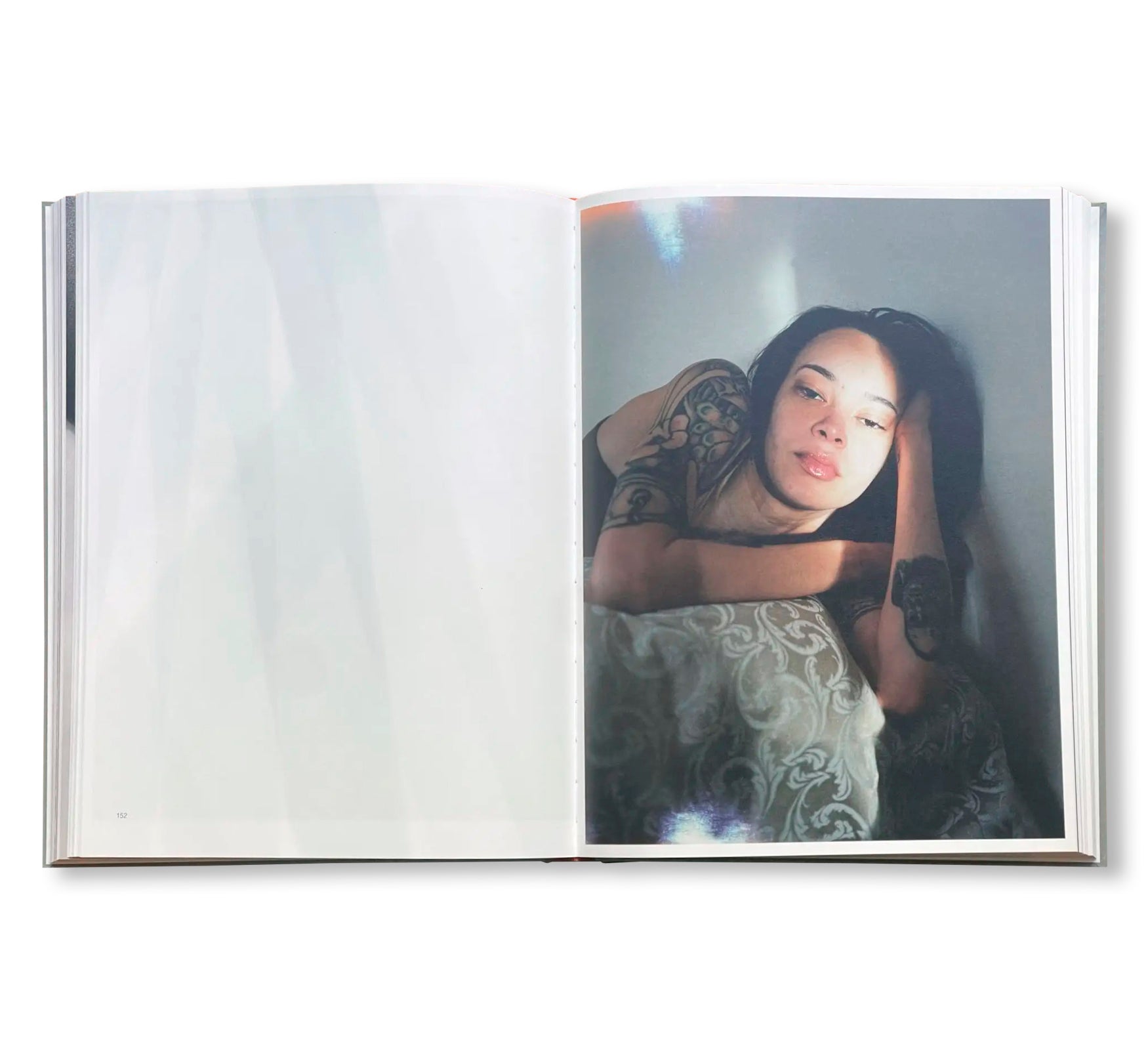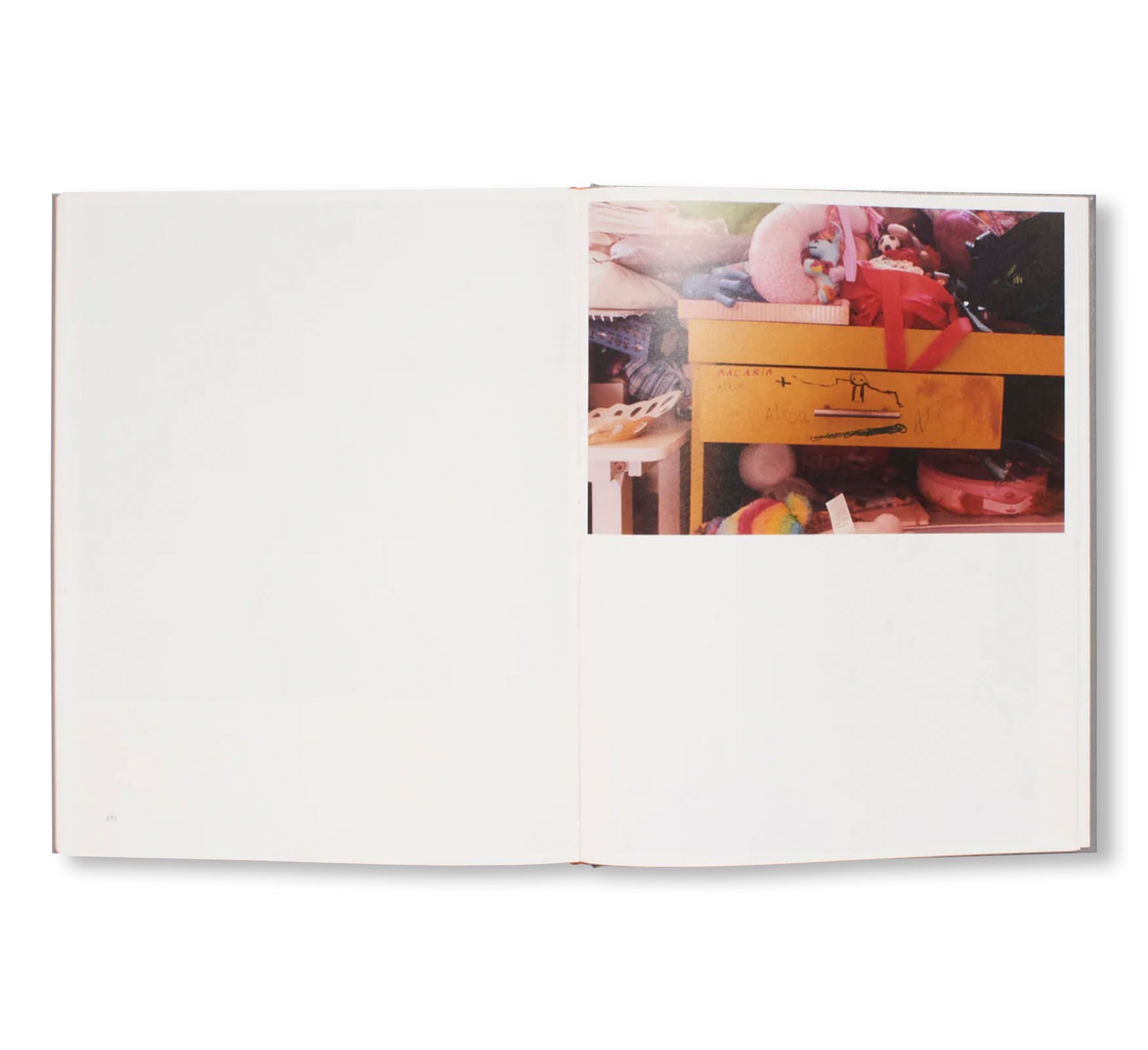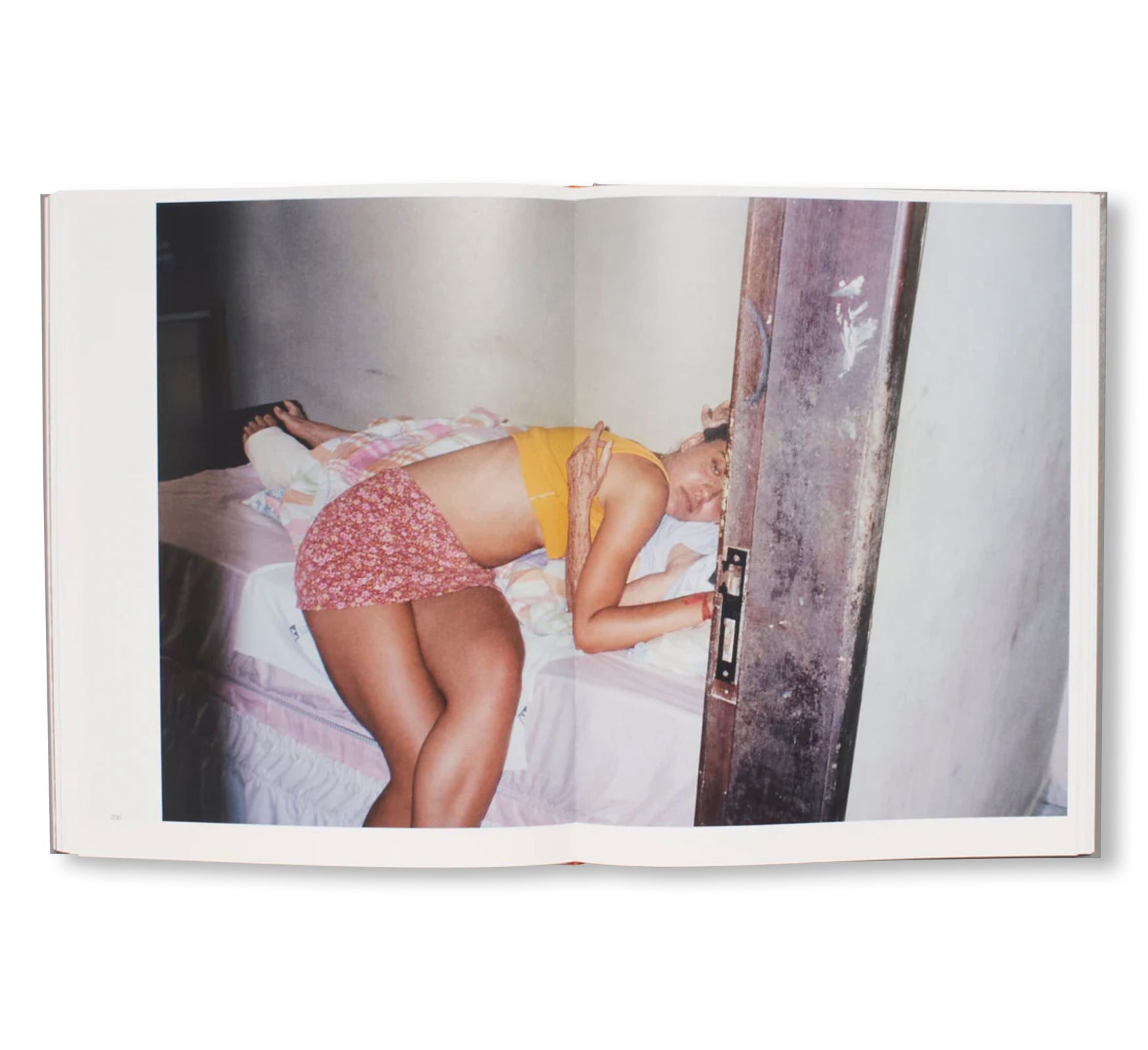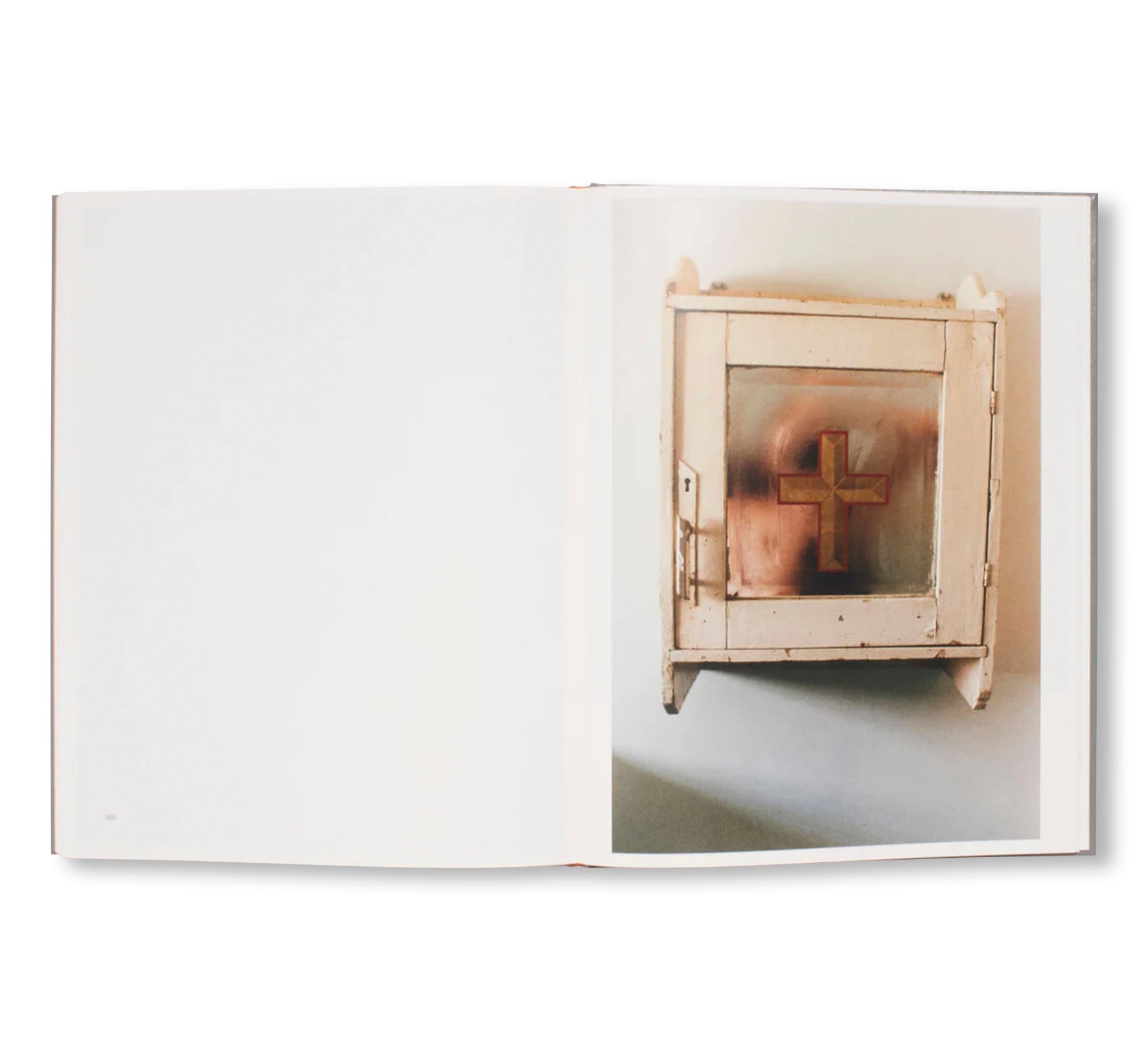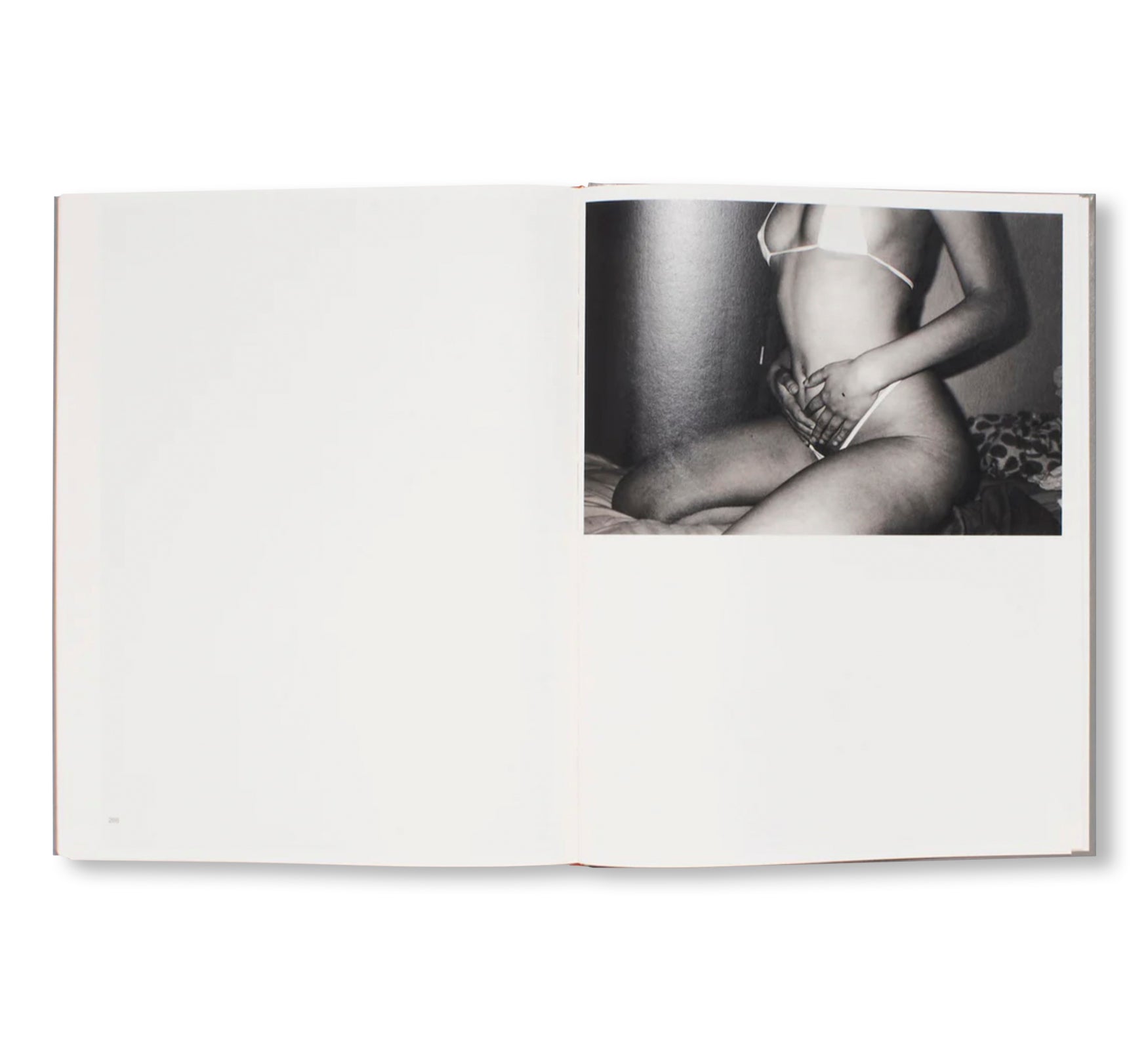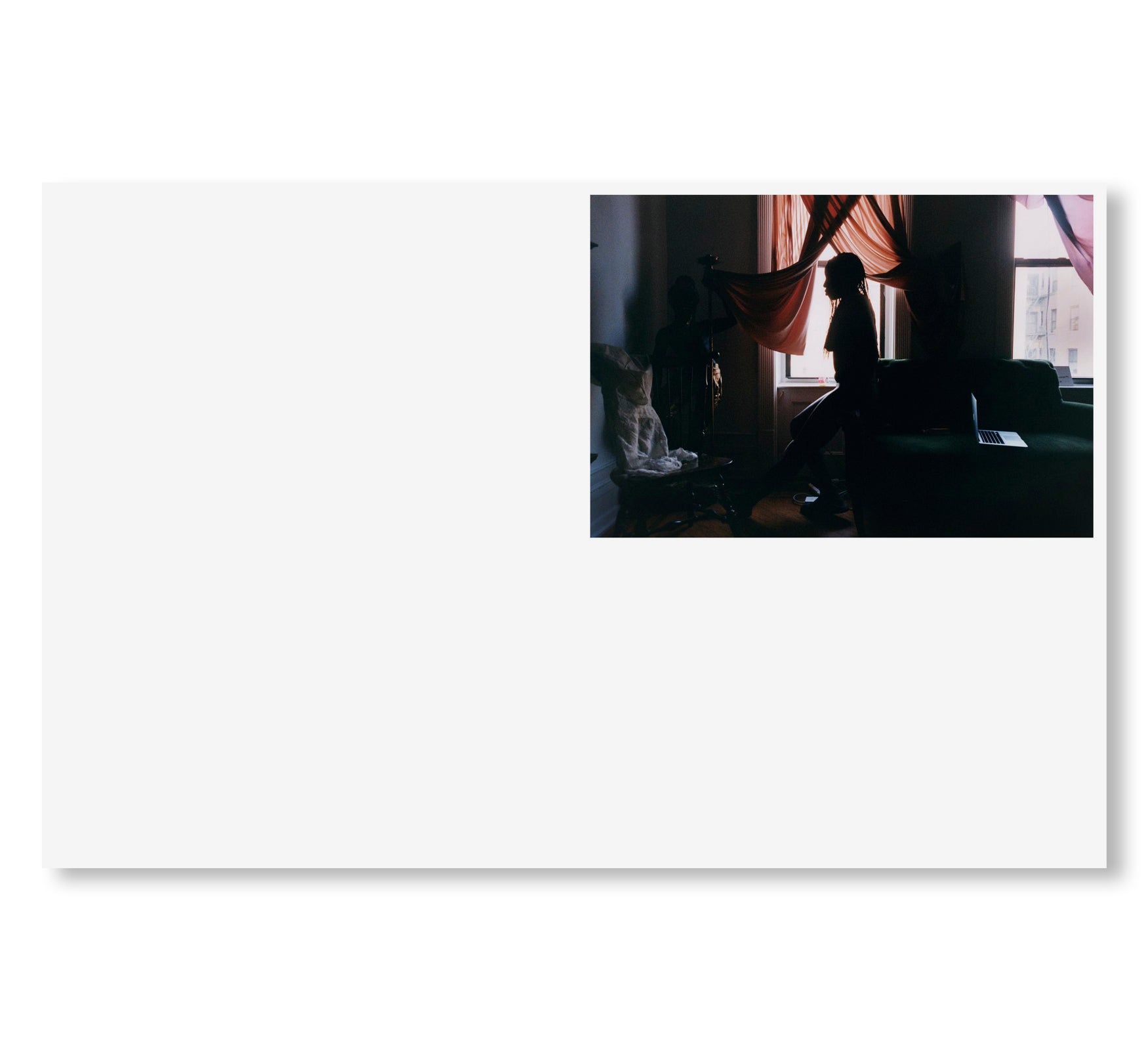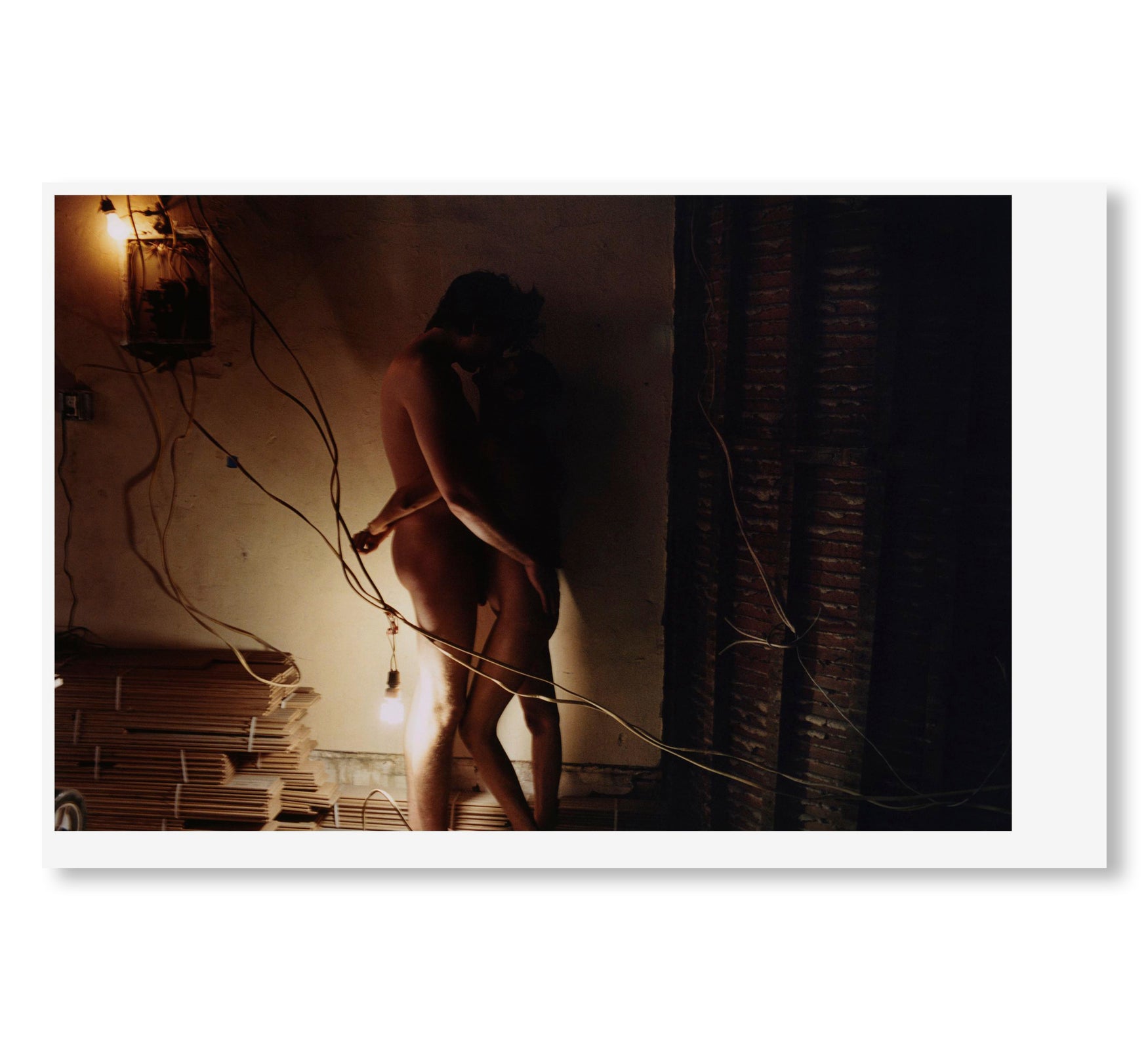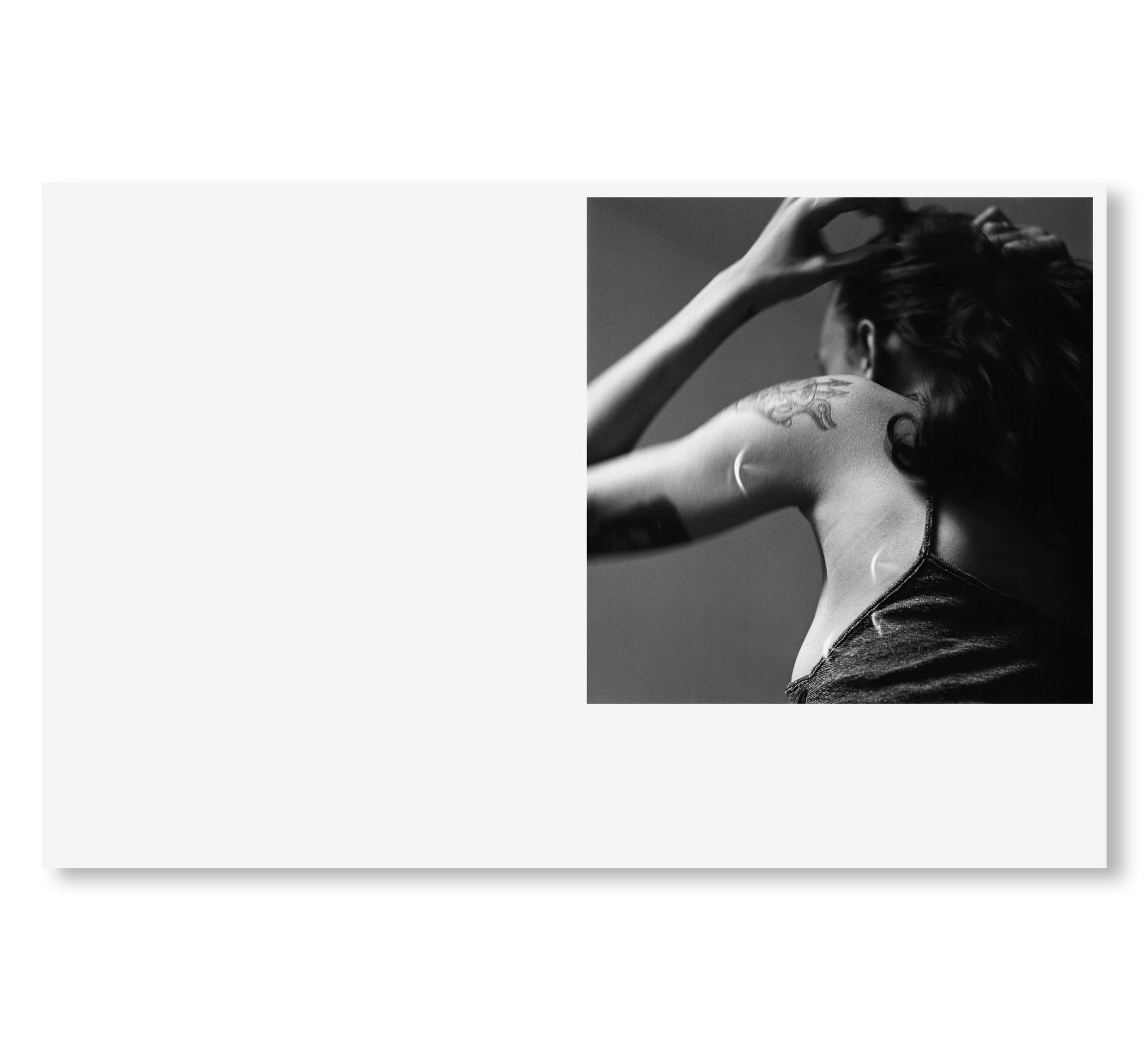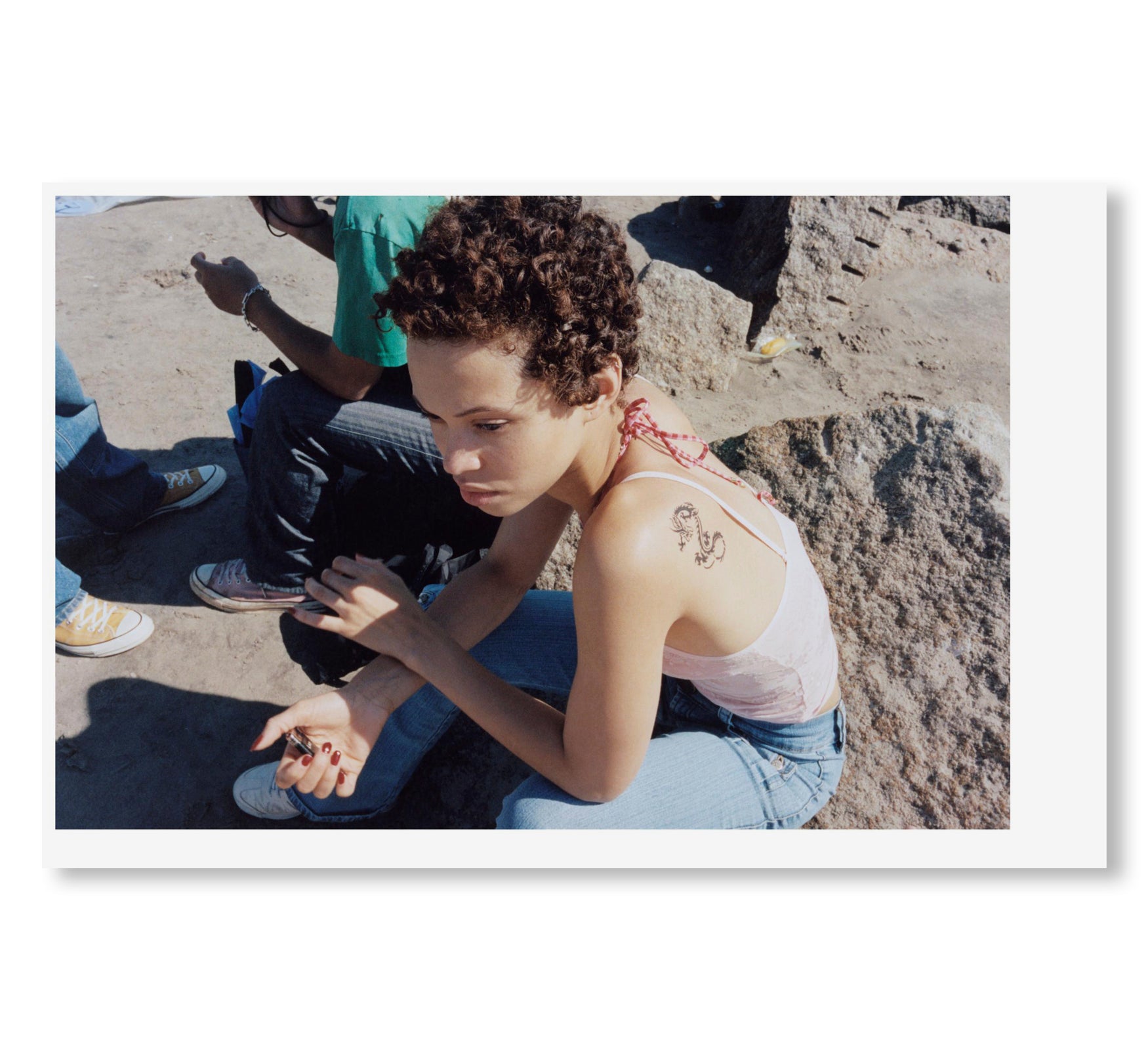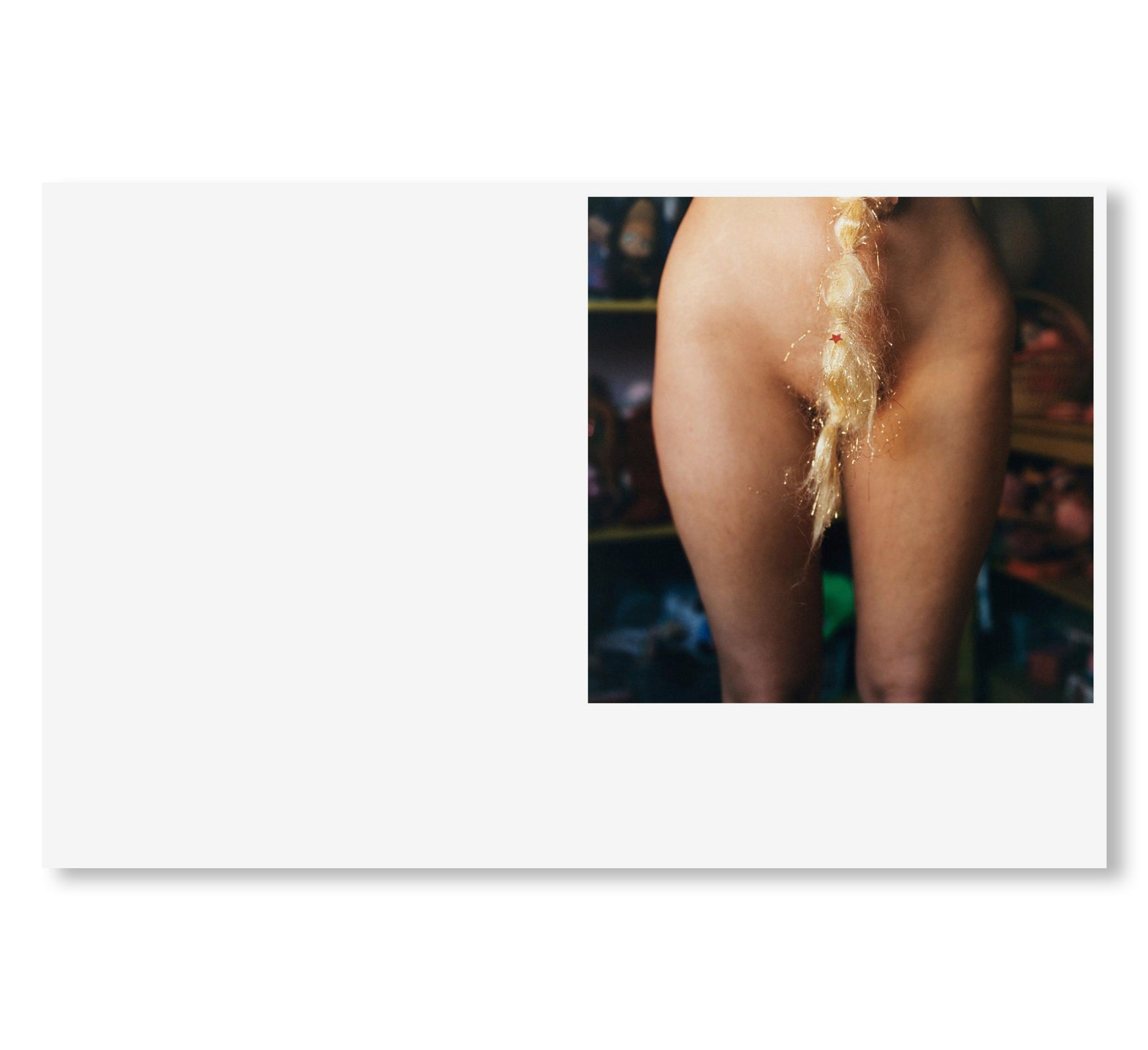GEOGRAPHY by Zora Sicher
ニューヨークを拠点に活動するアメリカ人フォトグラファー、ゾラ・シッカー(Zora Sicher)の作品集。本書は作者にとって初の刊行物となる。
少しのセックス、母性、そして崩壊がある —
– ガビー・セペダ(Gaby Cepeda)
写真と映像の境界を探りながら、ありのままの人間の身体を毅然と見つめる作品で知られる作者は、アイデンティティや多様性、そして古典と現代的な写真技法の交差をテーマとして表現を探り続けてきた。これまでにモデルのパロマ・エルセッサー(Paloma Elsesser)と共に刊行した『Treasure』(2023年、IDEA刊)では、彼女の胸部手術の記録を通して身体と変容の関係を描いている。
本書では、2011年から現在に至るまで残されてきた自身のアーカイブをもとに、親しい友人たちを撮影してきた写真を収録する。美術評論家でありキュレーターのガビー・セペダによる序文は、作者の写真がもつ儚さと、この作品群が掲げるシンプルでありながら大いなる問いに触れている。
「自分という存在を取り除くことはできるのだろうか。我々は自らの経験を物質化し、整えられた(あるいは少し乱れた)スナップショットのなかに閉じ込め、そこに最も身体的な記憶を注ぎ込むことができるのだろうか?だから我々は、自らの過去という贈り物を、ひとつの箱に収めてリボンを結ぶことができるのだろうか?」
– ガビー・セペダの序文より
作者の関心の核には、人間という存在への個人的なまなざしがある。身近な人々との関係を通して、自身の表現の本質を捉えようとする試みである。
「写真に収められた人や場所との関係性は、まるで愛し合う者たちのあいだに生まれる親密さと重なり合うことがある。セックスには無数の意味があるけれど、私が言いたいのはこういうことだ――『あなたは私を見ていい、私もあなたを見つめ返す』。」
——タイガー・ハッチェンス=アーチャーのエッセイより
デザインはパリを拠点とするデザイナーであり映像作家のマノン・ルタニー(Manon Lutanie)が担当。テキストはガビー・セペダとタイガー・ハッチェンス=アーチャー(Tiger Hutchence-Archer)が寄稿。
There’s a little bit of sex, motherhood, and ruin... from the text by Gaby Cepeda.
The first monograph by Brooklyn-born artist and photographer, Zora Sicher.
Sicher is known for her work exploring the boundaries between photography and film with an unflinching focus on the uncensored human body. She often investigates themes of identity, diversity, and the intersection of ancient and modern photographic processes. Sicher previously co-authored Treasure with Paloma Elsesser, which documented the model’s breast surgeries.
In Geography she draws upon her personal archives from 2011 to the present day photographing her inner circle of friends. The opening lines of the introductory text by the art critic and independent curator, Gaby Cepeda speaks to the ephemeral quality of her photographs and the simple yet lofty goal of this body of work.
Is it possible to get rid of oneself? Can we materialize our own experience, conveniently frame it in a neat (or slightly messy) snapshot and pour into it our most embodied memories, so we can stash them away, putting a final, pretty bow on the closed box that is the gift of our own past?
Sicher’s main concern seems to be the human condition from her own very personal perspective exploring the relationships around her to encapsulate the nature of her practice.
The intimacy of her work and her way of being with the people and places she photographs can feel interchangeable with the kind that is made between people making love....sex can mean a million different things but the kind that I mean is the kind that says, “you can look at me, I’ll look back.” From the essay by Tiger Hutchence-Archer
Designed by Paris based designer, filmmaker and publisher, Manon Lutanie with texts by Gaby Cepeda and Tiger Hutchence-Archer.
